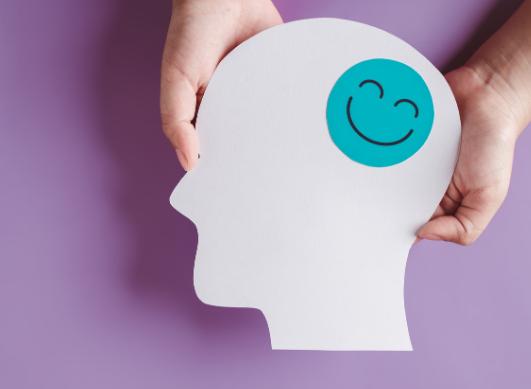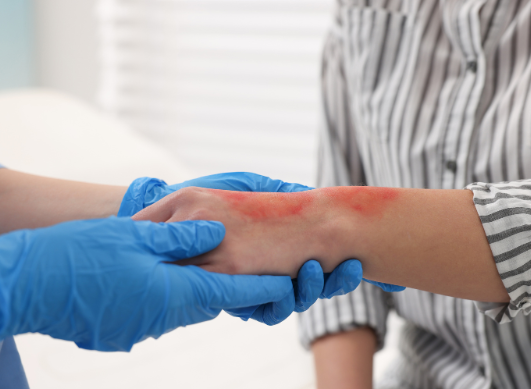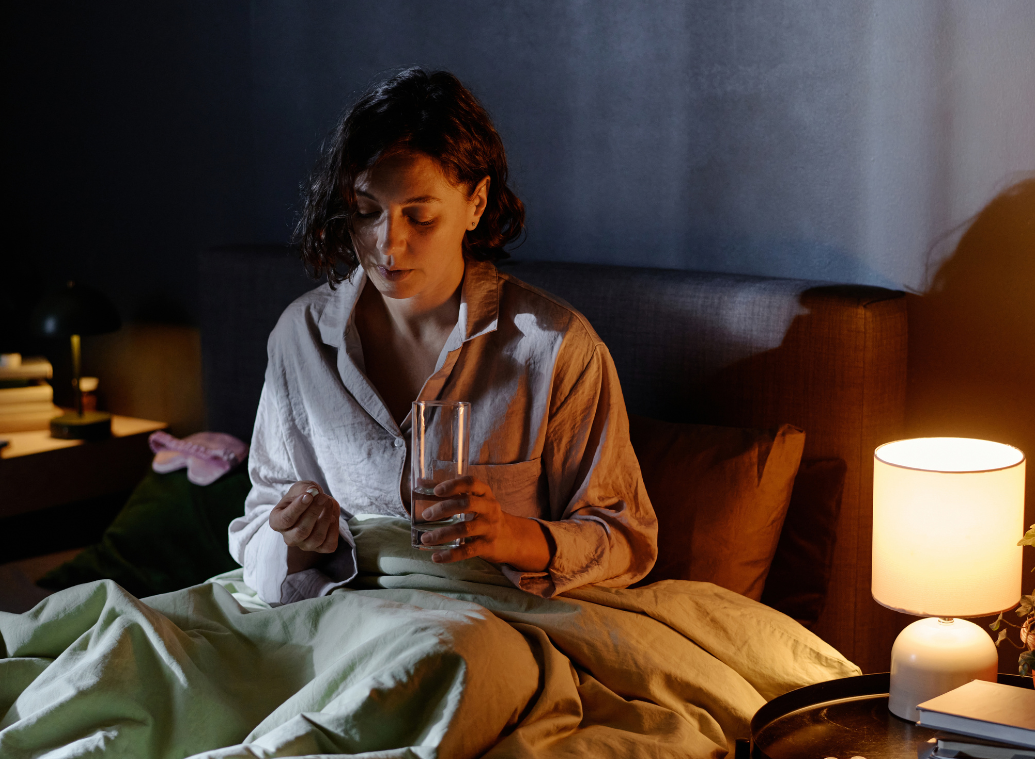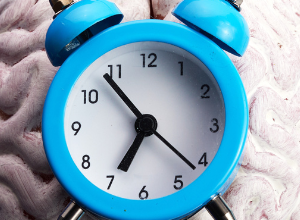- Home
- Forums
- Hypercholesterolemia Forum
- Living with cardiovascular diseases
- 6 atrial fibrillation triggers
Patients Hypercholesterolemia
6 atrial fibrillation triggers
- 102 views
- 4 times supported
- 12 comments
All comments
Go to the last comment

Margarita_k
Good advisor
![]()
Margarita_k
Last activity on 07/10/2020 at 11:39
Joined in 2016
1,195 comments posted | 18 in the Hypercholesterolemia Forum
2 of their responses were helpful to members
Rewards
-
Good Advisor
-
Contributor
-
Messenger
-
Committed
-
Explorer
-
Evaluator
@dennis47 , @laney365 , @nineteen_gale , @robjmckinney , @CazzaJane42
Don't hesitate to share your own experience on this subject.
See the signature
Community Manager

Unregistered member
Thank you for a very informative share Margarita. I did not associate AF with any triggers before. But having read your information, Stress is the number 1 trigger for me. having said that, some times, I have been very relaxed, reading in bed before going to sleep, and it was only on doing my Blood pressure as a routine, before going to sleep, that I notice my pulse rate to be as high as 180. I have always been asymptomatic. If I didn't check my BP as a routine, I would never know that I had, or am having an attack. I don't have any palpitations or chest pain or shortness of breath. Its only whilst checking my BP x 4 a day, that I notice my pulse rate between 160 to 199. My consultant thinks that I have Paroxysmal Atrial Fibrillation as it only occurs rarely,hence the reason I am having a Recordable Loop implanted next week, and it will be read every couple of months or so to monitor the activity of my heart. If I didn't routinely check my BP I would have never known that I have AF. My husband has a diagnosed AF and being a nurse, I routinely check his BP 4 times a day. Both of us have High Blood Pressure, so I check our BP every day on regular basis. But as yet, I have never had any symptoms when ever I had an attack of AF. The loop recording will perhaps reveal it all, so i will watch this space.
nineteen_gale
![]()
laney365
Good advisor
![]()
laney365
Last activity on 06/01/2026 at 17:06
Joined in 2015
140 comments posted | 1 in the Hypercholesterolemia Forum
10 of their responses were helpful to members
Rewards
-
Good Advisor
-
Contributor
-
Messenger
-
Committed
-
Explorer
-
Friend
I have triggers all the time, heat (as in temperature) and exercise or anything else that makes your heart beat faster. It is managed quite well with Beta-blockers, but will have to have another ablation at some point.
See the signature
Laney365

Unregistered member
I am not on beta blockers or any medication for it other than Ramipril for high blood pressure. My attacks are very rare. I do feel extreme heat in my head at times, and that is a trigger that my BP is high, but for AF i have none. Having this recordable Loop implanted on Wed to monitor the activity of the heart.

Unregistered member
Reading all this information I think I can see that there are degrees of AF - am I correct? I do get tired more easily than I used to but put this down to my age (75). I have never been one to sweat much but find I do now, is that another symptom. I take a BP tablet once a day now, plus a statin, plus an anti-coagulant. I try not to get hung up on, for example, my BP so I am loth to do home checks, am I wrong?

Unregistered member
I too take BP tablet once a day and Statin. I always used to feel the cold, but lately, I do sweat, which is unusual for me, and also feel very hot. I don't think it is AF related, as I only get AF attacks very rarely. For me is BP related. Being a Retired nurse, and monitoring my husband's AF, I do regular checks on our BP four times a day. It gives me the indication of how the treatment is working. If I am too high all the time, then GP reduces the dose or vice versa if i am too low most of the time. To me, home monitoring is useful because of my medical back ground.
nineteen_gale

Unregistered member
Good advice from a former nurse, thank you. I don't even know if I get AF attacks; is sweating more a symptom? I might look into buying a BP monitor though.

Unregistered member
Have you been actually diagnosed as having AF by medics CazzaJane? or are you presuming it. i am asking because you say that "I don't even know if I am having an AF attack", or like me, you are asymptomatic when you have an attack. Then how do you know that you are having an attack? Do you check your pulse? Do you feel your heart beating too fast as in racing? I would b interested to know if you are medically diagnosed as having AF. I would advise you not to look into it too much and get hung up about it if you are not medically diagnosed as having AF.
nineteen_gale

Unregistered member
Yes, medically diagnosed. I had a TIA while I was asleep and woke up with a wonky face etc. I rang 111 who sent an ambulance and I was taken to A&E. After lots of tests I was told I had high cholesterol and an irregular heartbeat, no mention of AF until I went to my GP who said "oh yes, you have AF", I also now have high blood pressure which was a complete surprise to me as it has always been completely normal in the past. I don't check my pulse but I do sometimes feel as if my heart is beating fast - again I usually put that down to my age.

Unregistered member
Thank you for letting me know CazzaJane42. As you age, the blood pressure does tend to go up and so does the cholesterol if you don't exercise regularly and eat healthy. Some times the Cholesterol rise is due to family history too. I have the same as you, high BP and raised Cholesterol Mine is certainly due to family history. My Dad had it and so did his mother and his youngest sister. So even though I eat healthy, no sugar salt or alcohol nor smoke and I have lots of fruits and vegetables, exercise regularly and swim too, I still suffer from High BP and raised Cholesterol. it would be a good idea to buy a BP machine and check your BP regularly at home. It will give your GP early indication of anything developing and thus the opportunity to commence early treatment. I don't suffer from any symptoms of AF apart from fainting spells three times in 4 years. If I didn't do my regular BP check at home, I wouldn't have known that I have AF, I wouldn't be investigated or treated and it could turn out to be fatal. So yes, I think home monitoring is a good idea and keep a record of the checks with the date, time, BP and pulse. Then when you see abnormal readings, you can talk to your GP about it so that something can be done about it sooner rather than when its too late.
Good luck.
nineteen_gale
Give your opinion
Members are also commenting on...
Articles to discover...

15/05/2018 | Advice
After a heart attack, it is necessary to resume doing sport or to start doing it
Subscribe
You wish to be notified of new comments
Your subscription has been taken into account








Margarita_k
Good advisor
Margarita_k
Last activity on 07/10/2020 at 11:39
Joined in 2016
1,195 comments posted | 18 in the Hypercholesterolemia Forum
2 of their responses were helpful to members
Rewards
Good Advisor
Contributor
Messenger
Committed
Explorer
Evaluator
You can experience atrial fibrillation without visible symptoms, or have a sudden attack without a trigger: this heart condition's symptoms as well as its triggers can be unpredictable. However, it is important to be able to identify at least some triggers, to decrease the frequency of attacks and lower the risk of a stroke.
Some of the common afib triggers include alcohol, smoking, exercise, and over-the-counter cough and cold medications. Here is the list of less known triggers, which can be equally dangerous for your heart:
Medical procedures
Heart surgery as well as any other type of surgery or medical procedure can be a trigger, as it is causes physical and emotional stress which stimulates your heart. Let your doctor know about your atrial fibrillation history before you have any medical procedure, even a minor one.
Travel
Taking a trip can expose you to potential afib triggers. These include becoming overtired, the stress of travel, and a change in sleep patterns, which can trigger the fight-or-flight response. Whenever you travel, get enough sleep, stay well hydrated, and don’t skip meals.
Stress
Stress is a common trigger of atrial fibrillation, and too much stress is like a shot of adrenaline to your heart. Identify your personal stressors and take steps to avoid or defuse them. If you can’t rule out all causes of stress, practice stress-reduction techniques to lessen the impact.
The holidays
“Holiday heart” is a well-documented atrial fibrillation trigger. That’s because the holidays can be a bonanza of triggers, including stress, fatigue, and alcohol use. Alcohol has an especially irritating effect on the heart, and binge drinking is a classic afib trigger. For this reason, it’s important to know your limits.
Air pollution
Atrial fibrillation attacks may go hand-in-hand with air pollution. In one study, researchers followed 176 people with atrial fibrillation with implanted defibrillators that turn on when an episode occurs. Two years’ worth of data from the study showed that there were more attacks of afib when air pollution was high.
The culprit seems to be very fine particles of pollution from cars and power plants that travel deep into the lungs and trigger atrial fibrillation. To prevent an afib episode, check local air quality daily, and don't go outdoors when pollution is high.
Dehydration
Dehydration can trigger atrial fibrillation. Low levels of minerals in the blood (electrolytes), especially potassium, can trigger an abnormal heart rhythm, and when you’re dehydrated, electrolytes are depleted. Dehydration is most common in hot weather, especially when exercising outdoors, but it can also result from an illness that includes vomiting or diarrhea. Be sure to drink enough water on hot days and whenever you're sick.
Atrial fibrillation triggers are abundant and often surprising. Even seemingly happy events, like vacations and celebrations, can trigger an attack. It is important to keep everything in moderation, to avoid as much as possible, the situations that can cause an attack.
_________________________
Which of these triggers has impact on your atrial fibrillation? Do you know any others?
Is it easy for you to determine your triggers?